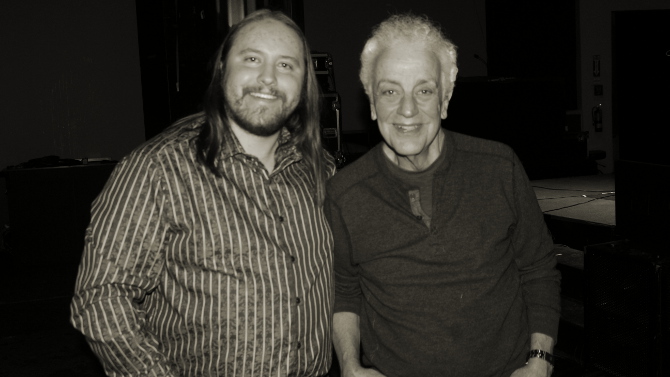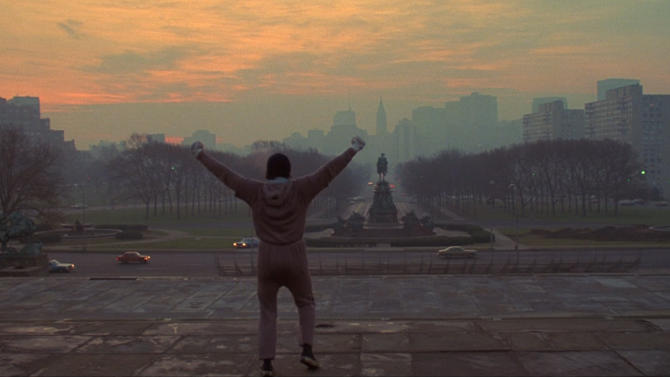Recently, I was fortunate enough to sit down with blues legend Doug MacLeod. A one man show, the acoustic maestro does it all while on stage; not only does he sing, play the guitar and stomp, but he also throws out important life lessons, tells jokes, and regales his audience with engaging stories – making him just as much a philosopher (see him live to learn of his bucket theory), storyteller, motivational speaker and stand-up comedian (though as the blues man quite cleverly pointed out, he is actually a sit-down comic – as he performs while seated).
The winner of countless awards for his craft, the last few years should provide you with a good idea of his pedigree: in 2013, he took home Male Blues Artist of the Year at the Blues Blast Music Awards. Then in 2014, MacLeod won both Acoustic Artist and Acoustic Album of the Year at the Blues Music Awards, once again claiming the top prize of Acoustic Artist of the Year in 2016. This year, he has been honoured with a nomination for his most recent album, “Doug MacLeod – Live in Europe” – which is up for Best Historical Album, while also looking for a third win in the Acoustic Artist category. He has released an impressive 24 albums over the past thirty plus years.
Trained by the masters, including George “Harmonica” Smith, Big Joe Turner, Big Mama Thornton and so many others, his unique, vivid tales, which he has transcribed so perfectly into the realm of music, have been covered by the likes of Albert King, Albert Collins and so many others.
MacLeod, often called Dubb (a nickname given to him by “Harmonica” Smith – who could not or would not call him Doug), was gracious enough to spend some quality time with me following his crowd-pleasing performance at The Port Theatre in Cornwall, Ontario on March, 16th, 2017. . . and we took the conversation down past the crossroads and into the historic sphere of the blues. Make sure to check out the video below to hear MacLeod tell some rich, wonderful stories about some blues legends, what his thoughts are on blues music today (and what may come in the future), his perspective on where young listeners who do not know the genre should start, and so many other intriguing things. Also, feel free to click on this link to get a sense of MacLeod’s talents: https://www.youtube.com/watch?v=uC3XzFIrzfo
When the conversation finally turned to his top film, it did not take him long to highlight the 1977 Academy Award Best Picture winner Rocky as being his favourite. Pointing to one of the feature’s main themes, overcoming adversity, the story clearly spoke to the artist, drawing many parallels to his life and career as a traveling musician.
Directed by John G. Avildsen, the classic motion picture stars Sylvester Stallone (who also wrote the movie) as Rocky Balboa – a poor, small-time boxer and loan shark collector in Philadelphia. Heavyweight Champion of the World Apollo Creed (Carl Weathers) is planning to defend his title in the City of Brotherly Love when his opponent drops out due to injury. Unable to find another professional who is willing to fight the behemoth, Creed comes up with a clever plan and decides to select a local boxer as his opponent – giving a no-name a once in a lifetime opportunity for a chance to become the world champ.
Balboa is chosen not for his skill or prowess, but simply because Creed loves the ring of his nickname, ‘the Italian Stallion’. Taking hold of the unlikely opportunity, the underdog trains with a former fighter and gym owner, Mickey Goldmill (Burgess Meredith), who has never thought particularly highly of Rocky. To add another layer to the story, the small-time boxer also falls for an extremely shy woman named Adrian (Talia Shire). A little known fact is that one of the reasons Shire plays Adrian so timidly early on is that she had a very bad flu and was worried about passing it on to Stallone (though it works as the two begin to date and she blossoms anew – Rocky coaxing her out of her defensive shell). As the fight approaches, Rocky entrusts her with his biggest secret: that he does not expect to win the fight; but hopes that he will be able to go the distance with Creed (something no one else has ever done). It is a stirring, realistic conversation – emphasizing the fear and doubt athletes have, despite the fact that most would never reveal such a ‘human side’ to others.
What follows must be considered one of the best fictitious boxing matches of all-time, with Balboa and Creed going head-to-head, mano a mano in front of an eagerly watching world. Will Rocky be able to pull off the upset, surprising the giant, or will he fall prey to the man’s fierce, fiery punches?
Not only the winner of Best Picture, but also of Best Director and Best Editing at the Oscars, some may be surprised to find out that Stallone was not wanted for the starring role. Though he wrote the underdog tale with himself in mind, producers Irwin Winkler and Robert Chartoff (who were interested in the script), knew the perils of signing an unknown to star. Stallone, down on his luck (with no money in the bank – he was so poor he even sold his dog, mostly because he could not feed it), was offered an impressive three hundred and fifty thousand dollars for the story – a large sum of money in 1976. Gambling, he wouldn’t accept unless he was also given the role, which they agreed to (if Stallone accepted their stipulations). Heading to United Artists, the studio was not impressed with Stallone (looking for the likes of a Robert Redford, Burt Reynolds, Ryan O’Neal or James Caan to take on the persona of Rocky Balboa), so they cut the budget to a minuscule one million dollars. . . and held the producers liable if they went over budget. They did (by one hundred thousand), and the pair mortgaged their homes to finish the project (in hindsight, a very good choice).
To flash back a bit, though United Artists were not overly fond of Stallone, they accepted it – or so they thought. The head of the Los Angeles department for UA, Mike Medavoy, contacted company CEO Arthur Krim – who wanted to know more about the young writer/want-to-be actor of the project. Medavoy sent a copy of 1974’s Lords of Flatbush to Krim, which Stallone acted in and had a writing credit for (he wrote additional dialogue) – Medavoy thought it was a sharp example of the actor’s chops. Featuring a gang of unknown actors, Krim queried as to who Stallone was, and the executives pointed to the blondish actor (actually actor Perry King). Surprised at his non-Italian look, they shrugged it off, suggesting that his family must come from the Northern parts of Italy. Accepting the skills of Stallone (once again, King), they green lit the film, only to find out, many months later, that they had picked out the wrong guy.
Often shot in guerrilla-style, many of the film’s most iconic moments, the montages of Rocky training, were done without permits or a full crew. An example of this finds them driving by the docks, which caught the eye of director Avildsen. Stallone popped out of the van and the film maker himself shot the famous footage. Another scenario finds Rocky being gazed at by bemused onlookers at a food market – completely clueless as to what was actually going on. At one point, Rocky is tossed an orange by a vendor – a perfectly-timed spontaneous action.
Inspired in part by the Mohammed Ali/Chuck Wepner fight on March 24th, 1975, Rocky is an outstanding underdog story – a wondrous version of the ‘American Dream’. One of the great franchises, it has spawned six sequels, including the most recent, Creed (the first not to have ‘Rocky’ in the title). Though each have appealing moments, it is hard to argue with the supremacy of the original film. It features so many memorable moments, from “Yo Adrian!” to Rocky’s training in the meat packing plant and scaling the steps of the Philadelphia Museum of Art (where a statue of Stallone’s Rocky now stands in honour of the iconic moment), a story that stirs our emotions and pulls at our heartstrings. Yet, so much of this depends on the memorable performances. This is the film that truly put Stallone on the map, launching his career and making him a bonafide star. Weathers is perfect as the overly cocky boxing champ, the seemingly unbeatable challenge for our underdog. Then there is Meredith, who is spot on as the grizzled, old-school trainer. Shire is strong as the shy woman who falls in love with Rocky. Finally, Burt Young, who plays Adrian’s brother Paulie, is a great counterpunch to the other characters, exuding feelings of anger, resentment and bitterness, yet we know that he is loyal and truly cares about his sister and best friend Rocky. Though these characters may sound like stock stereotypes, in many ways, it was this film that thrust these types of personas into that realm. So, step through the ropes and re-watch this Stallone flick; you’ll feel like a winner after viewing this knockout of a movie.


